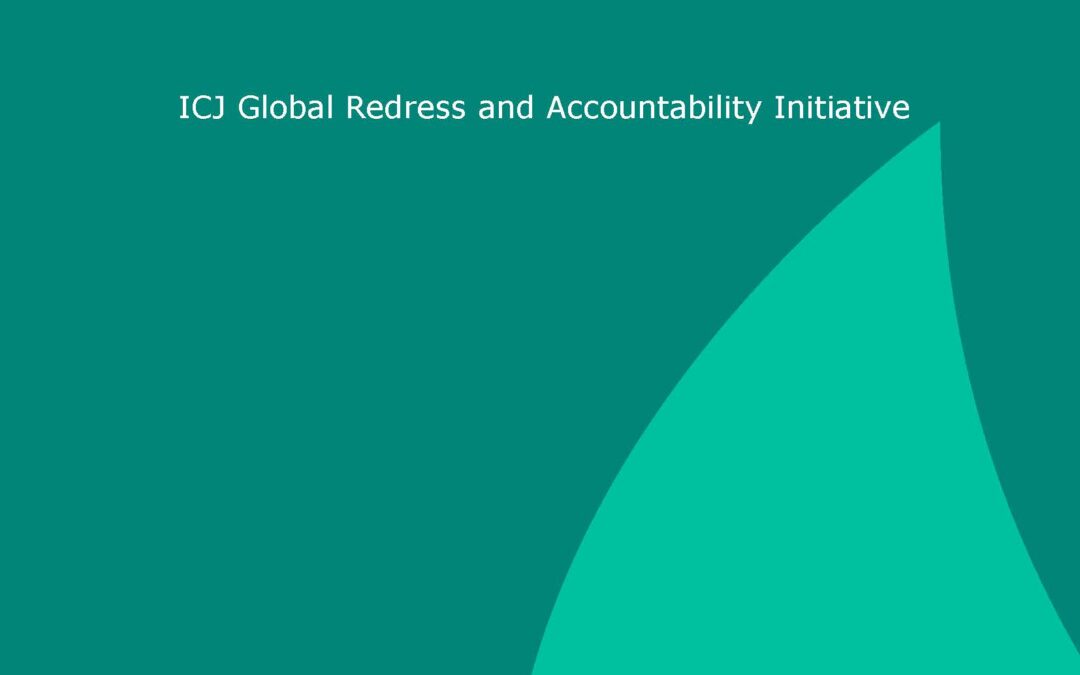
May 3, 2018
On 2 and 3 May 2018, the ICJ is holding a conference on the role of Tunisia’s Specialized Criminal Chambers (SCC) in addressing the legacy of gross human rights violations. The ICJ’s report, Achieving justice for gross human rights violations in Tunisia, was launched during the event.
The conference, held in cooperation with the International Center for Transitional Justice (ICTJ) and The National Independent Coordination for Transitional Justice (NICTJ), and organized in coordination with the Tunisia’s Ministry of Justice, High Judicial Council and Bar Association, aims to:
- Discuss the legal and factual requirements on the referral of cases by the Truth and Dignity Commission (IVD) to the SCC;
- Analyze and discuss the legal and practical obstacles that might impede the SCC’s work;
- Discuss the role of victims in criminal proceedings before the SCC;
- Identify recommendations to relevant authorities (including the High Judicial Council, the Ministry of Justice and the Bar Association) with a view to ensuring the effective administration of justice by the SCC in accordance with Tunisian domestic law and relevant international law and standards.
Four years after its establishment, the IVD transferred a first case on 2 March 2018, concerning 14 suspects and the crime of enforced disappearance, to the SCC. Three other cases were transferred since then.
While such referrals are a first step towards redress and accountability, numerous legal and practical obstacles may hinder the SCC’s capacity to deliver meaningful justice. In two memos addressing the jurisdiction and the procedures to be applied by the SCC, the ICJ identified such obstacles and formulated recommendations for amendments and reform.
Download the ICJ’s reports
Tunisia-GRA Baseline Study-Publications-Reports-Thematic reports-2018-ENG (full report in English, PDF)
Tunisia-GRA Baseline Study-Publications-Reports-Thematic reports-2018-ARA (full report in Arabic, PDF)
Further readings
Tunisia-Memo-on-SCC-Procedures-Advocacy-Analysis-Brief-2017-ENG-1 (Briefing Paper in English, July 2017)
Tunisia-Memo-on-SCC-Advocacy-Analysis-Brief-2016-ENG (Briefing Paper in English, November 2016)
Tunisia-Memo-on-SCC-Advocacy-Analysis-Brief-2016-ARA (Briefing paper in Arabic, November 2016)
Further references
Tunisia: appointment of constitutional court members must meet international standards (ICJ press release, 12 March 2018)
Tunisia: Specialized Criminal Chambers to hear enforced disappearance case, a first step towards accountability (ICJ press release, 6 March 2018)
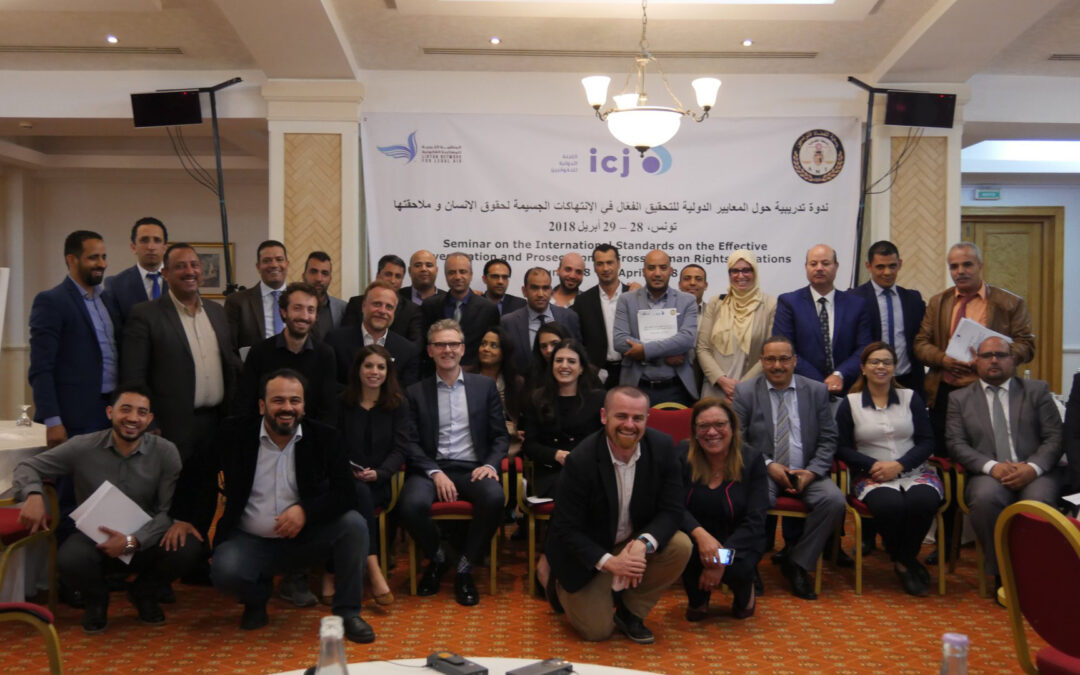
Apr 29, 2018 | News
Between 28 and 29 April 2018, the ICJ co-hosted a Seminar for judges and prosecutors from Tunisia and Libya on the international law and standards that apply to the investigation and prosecution of gross human rights violations.
The participants included more than 30 judges and prosecutors from different regions in Tunisia and Libya.
The Seminar was co-hosted with the Associations des Magistrats Tunisiens (AMT) and the Libyan Network for Legal Aid.
The event commenced with opening remarks by ICJ Commissioner, Justice Kalthoum Kennou of Tunisia.
Kingsley Abbott, Senior Legal Adviser at the ICJ, delivered a comprehensive overview of the international human rights law and standards that apply to the duty to investigate gross human rights violations.
He noted in particular that investigations of potentially unlawful deaths play a key role in accountability by upholding the right to life, which is guaranteed by Article 6 of the International Covenant on Civil and Political Rights.
He then introduced the revised Minnesota Protocol on the Investigation of Potentially Unlawful Death (2016), which sets out a common standard of performance in investigating potentially unlawful deaths or suspected enforced disappearance and a shared set of principles and guidelines for States, as well as for institutions and individuals who play a role in the investigation.
The revised Minnesota Protocol formed part of the core materials referred to at the Seminar, together with the ICJ Practitioners Guide No 9 – Enforced Disappearance and Extrajudicial Execution: Investigation and Sanction (2015).
The Seminar also covered the collection of evidence, the duty to prosecute, and fair trial rights.
Other speakers at the event included Vito Todeschini, Associate Legal Adviser at the ICJ; Aonghus Kelly, Senior Legal Adviser, EU Border Assistance Mission in Libya (EUBAM); and Martin Hackett, Senior Trial Counsel at the Special Tribunal for Lebanon in the Hague.
Contact
Said Benarbia: said.benarbia(a)icj.org
Kingsley Abbott: kingsley.abbott(a)icj.org
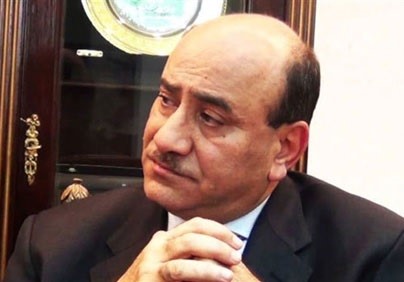
Apr 25, 2018 | News
The ICJ today called on the Egyptian authorities to quash the conviction of, and immediately release Hisham Geneina, a former judge and former head of the Central Auditing Authority in Egypt.
A Cairo military court convicted Geneina on Tuesday 24 April and sentenced him to five years in prison for “publishing false information harmful to the national security.”
The charges were related to a media interview in which Geneina criticized the interference of the Egyptian authorities in the election process and referred to the existence of documents that incriminate political and military leaders since 2011, including in cases of human rights violations.
The first hearing of the military trial took place on 18 April.
At the defense request, it was adjourned to 20 April so that the lawyers can have access the case file. The judgement was issued 4 days later.
“Genina’s detention, prosecution and conviction solely for peacefully and legitimately exercising his right to the freedom of expression is a testament to the length to which Egypt’s military and government would go to silence critical voices,” said Saïd Benarbia, ICJ MENA Director.
“After a grossly unfair trial before a military court that he should never have been prosecuted before in the first place, Egyptian authorities must stop the charade and immediately and unconditionally release Hisham Geneina,” he added.
Egypt – Geneina – News – Webstory – 2018 – ARA (Arabic translation in PDF)
Background
Hesham Genena was arrested on 13 February following a media interview in which he claimed, among other things, that the former Chief-of-staff Sami Annan was in possession of documents incriminating the country’s political and military leadership.
One day before his arrest, the military spokesperson said that Genena’s statement casts doubts on the State and its institutions in the time where the armed forces are combating terrorism in Sinai.
He added that the armed forces will use their rights as provided for in the Constitution and the law to protect national security, and that they will refer the matter to the relevant authorities to take legal action.
According to information provided by his lawyer, Geneina is currently in solitary confinement in the Cairo Appeal Prison and his health condition is deteriorating due to injuries related to a physical attack against him on 27 January, for which he needs surgical intervention.
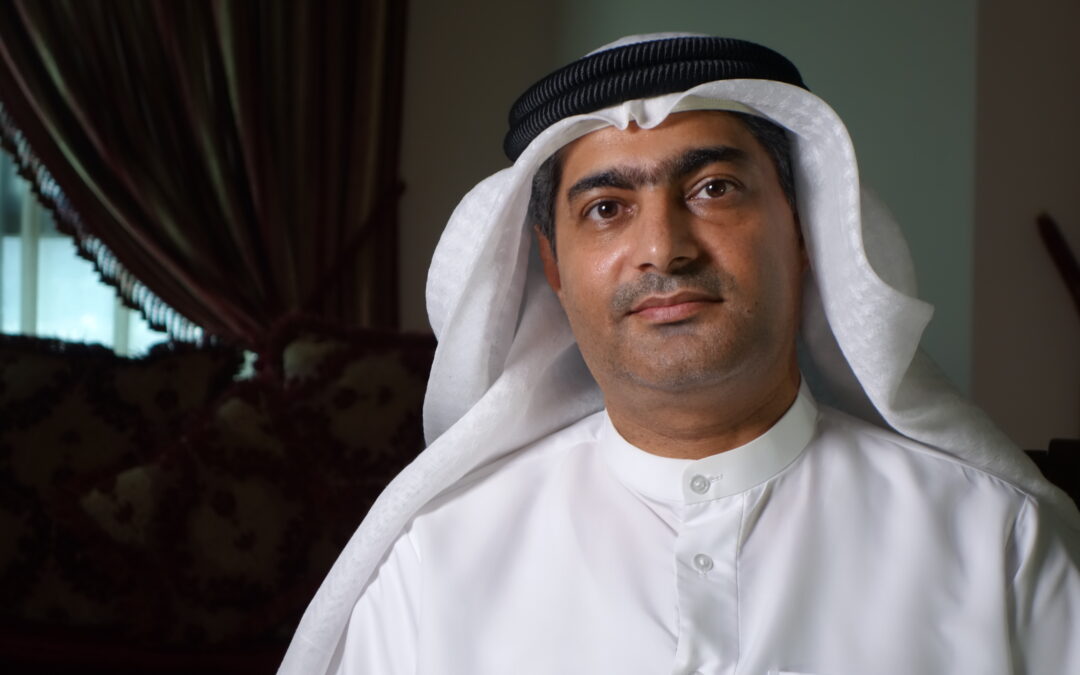
Mar 20, 2018 | News
The authorities in the United Arab Emirates (UAE) should reveal the whereabouts of prominent human rights defender and citizen-journalist Ahmed Mansoor and release him immediately and unconditionally, two dozen human rights organizations, including the ICJ, said today.
Ahmed Mansoor is being held for his peaceful human rights work.
20 March 2018 marks one year since security forces arbitrarily arrested Mansoor, winner of the Martin Ennals Award for Human Rights Defenders in 2015, at his home in Ajman.
The UAE authorities have continued to detain him in an unknown location, despite condemnation from UN human rights experts and independent human rights organizations.
“The authorities have subjected Ahmed Mansoor to enforced disappearance since his wife last saw him in September 2017. They must reveal his whereabouts to his family and grant him immediate access to them and to a lawyer of his choosing,” said Khalid Ibrahim, Executive Director of the Gulf Centre for Human Rights (GCHR).
Following his arrest, the authorities announced that he is facing speech-related charges that include using social media websites to “publish false information that harms national unity.”
On 28 March 2017, a group of UN human rights experts called on the UAE government to release Mansoor immediately, describing his arrest as “a direct attack on the legitimate work of human rights defenders in the UAE.”
They said that they feared his arrest “may constitute an act of reprisal for his engagement with UN human rights mechanisms, for the views he expressed on social media, including Twitter, as well as for being an active member of human rights organizations.”
“Mansoor’s arbitrary detention is a violation of his right to freedom of expression and opinion. The UAE authorities must drop all charges against him and release him immediately,” said Carles Torner, Executive Director of PEN International.
Since his arrest, Mansoor has not been allowed to make telephone calls to his family and has been allowed only two short visits with his wife, on 3 April and 17 September 2017, both under strict supervision.
He was brought from an unknown place of detention to the State Security Prosecutor’s office in Abu Dhabi for both visits.
The authorities have refused to inform his family about his place of detention and have ignored their requests for further visits.
In February 2018, a group of international human rights organizations commissioned two lawyers from Ireland to travel to Abu Dhabi to seek access to Mansoor.
The UAE authorities gave the lawyers conflicting information about Mansoor’s whereabouts.
The Interior Ministry, the official body responsible for prisons and prisoners, denied any knowledge of his whereabouts and referred the lawyers to the police.
The police also said they had no information about his whereabouts. The lawyers also visited Al-Wathba Prison in Abu Dhabi following statements made by the authorities after Mansoor’s arrest, which suggested that he was being held there.
However, the prison authorities told the lawyers that there was nobody matching Mansoor’s description in prison.
“Pending his release, Mansoor must be granted immediate and regular access to his family, as well as to a lawyer of his choosing,” said Sima Watling, UAE Researcher at Amnesty International’s Middle East Regional Office.
UAE-one-year-Ahmed-Mansoor-remain-unknown-2018-ENG (Full text in PDF)
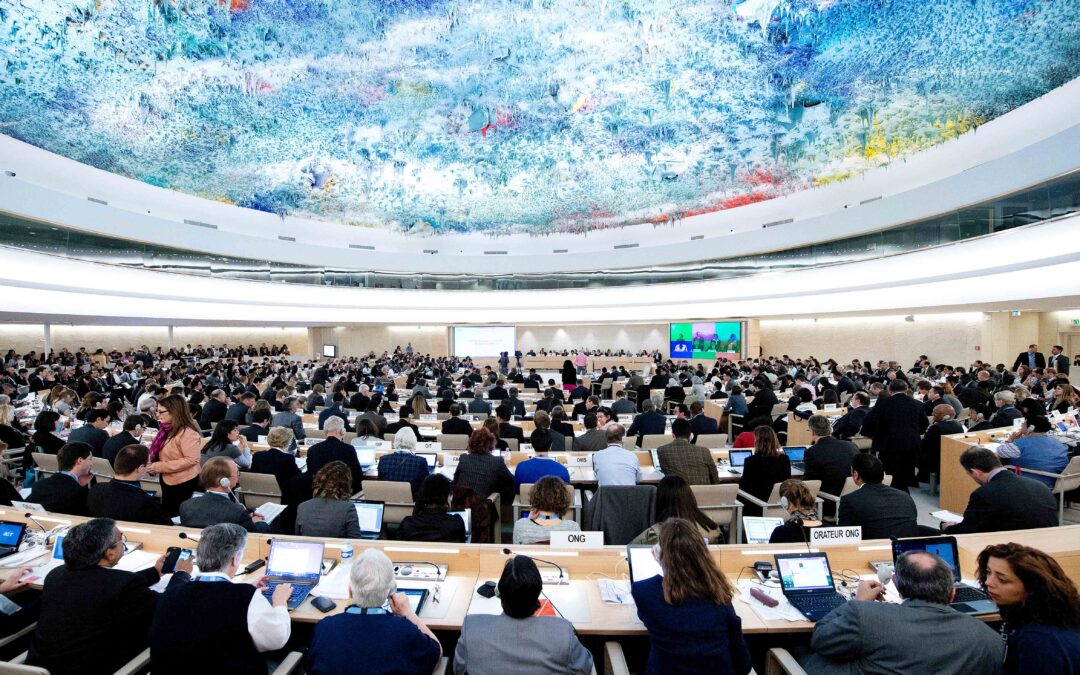
Mar 20, 2018 | Advocacy, Non-legal submissions
The ICJ today spoke at the Human Rights Council about the creation of a UN database of business enterprises involved in Israeli settlements in the Occupied Palestinian Terrority (OPT).
The statement, delivered in general debate under item 7 of the Council agenda, read as follows:
“Regarding the Report on a Database of business enterprises involved in listed activities in the settlements on the Occupied Palestinian Territory (A/HRC/37/39), the ICJ recognizes that considerable progress has been made, but considers that the normative and methodological frameworks of the database would benefit from incorporating an analysis of corporate complicity under international law, in addition to the existing references to the UN Guiding Principles on Business and Human Rights.
The ICJ stresses that a transparent process and strong due process safeguards in relation to companies alleged to be involved are essential and notes the efforts of the OHCHR in this regard.
All States, including the home States of the companies involved, have a responsibility to prevent companies from operating in breach of international law. Businesses themselves should see the database as an opportunity to more proactively incorporate respect for human rights within their policies and operations.
The database should contribute to global efforts to hold all business enterprises accountable for their role in violations of human rights and humanitarian law. Indeed, the ICJ urges all States, including those that have supported the creation of this database, to support and give due attention to addressing the human rights impacts of businesses in their own territories as well as global operations of businesses for which they are the home State.”
Video of the statement is available here:









